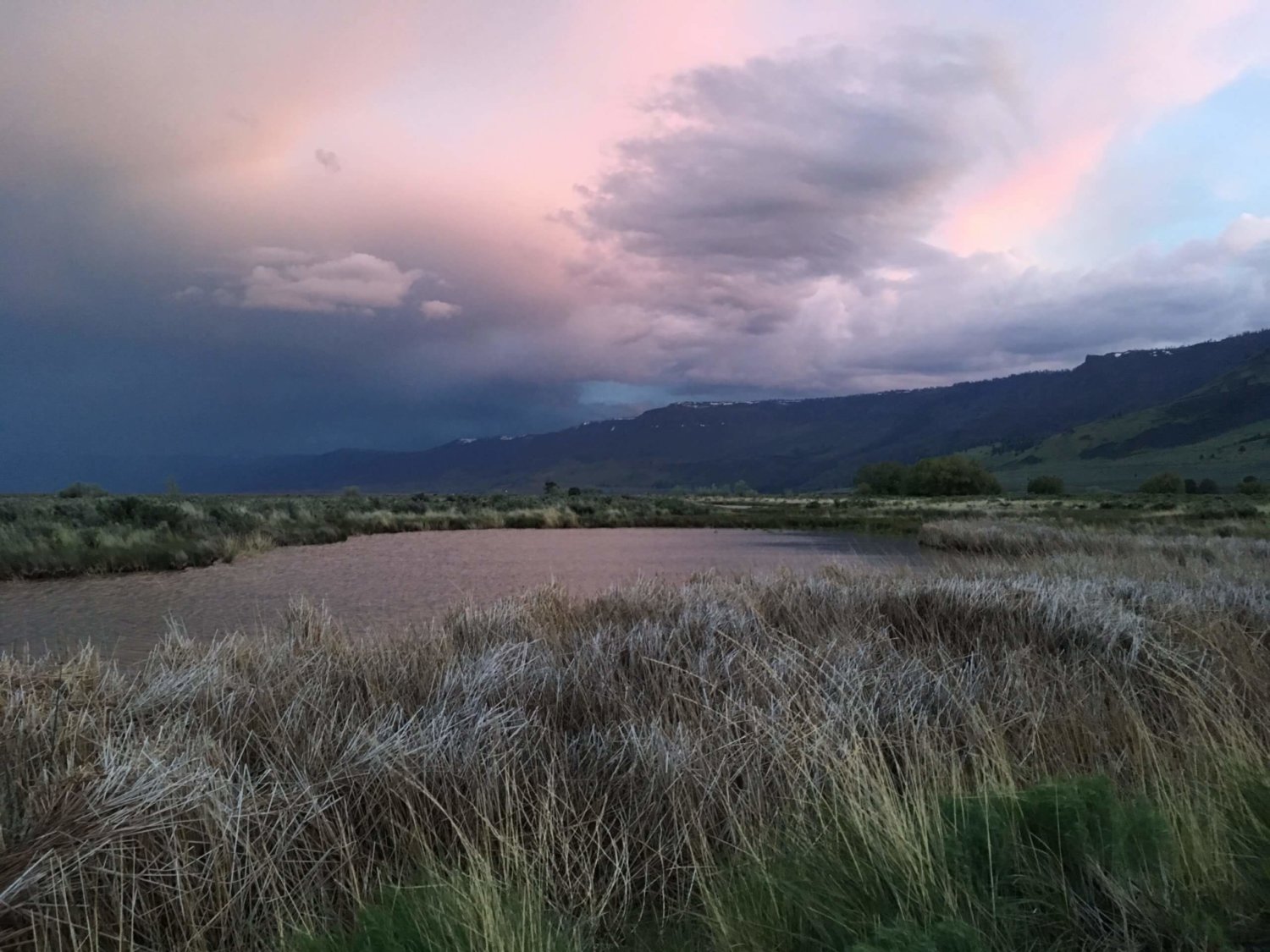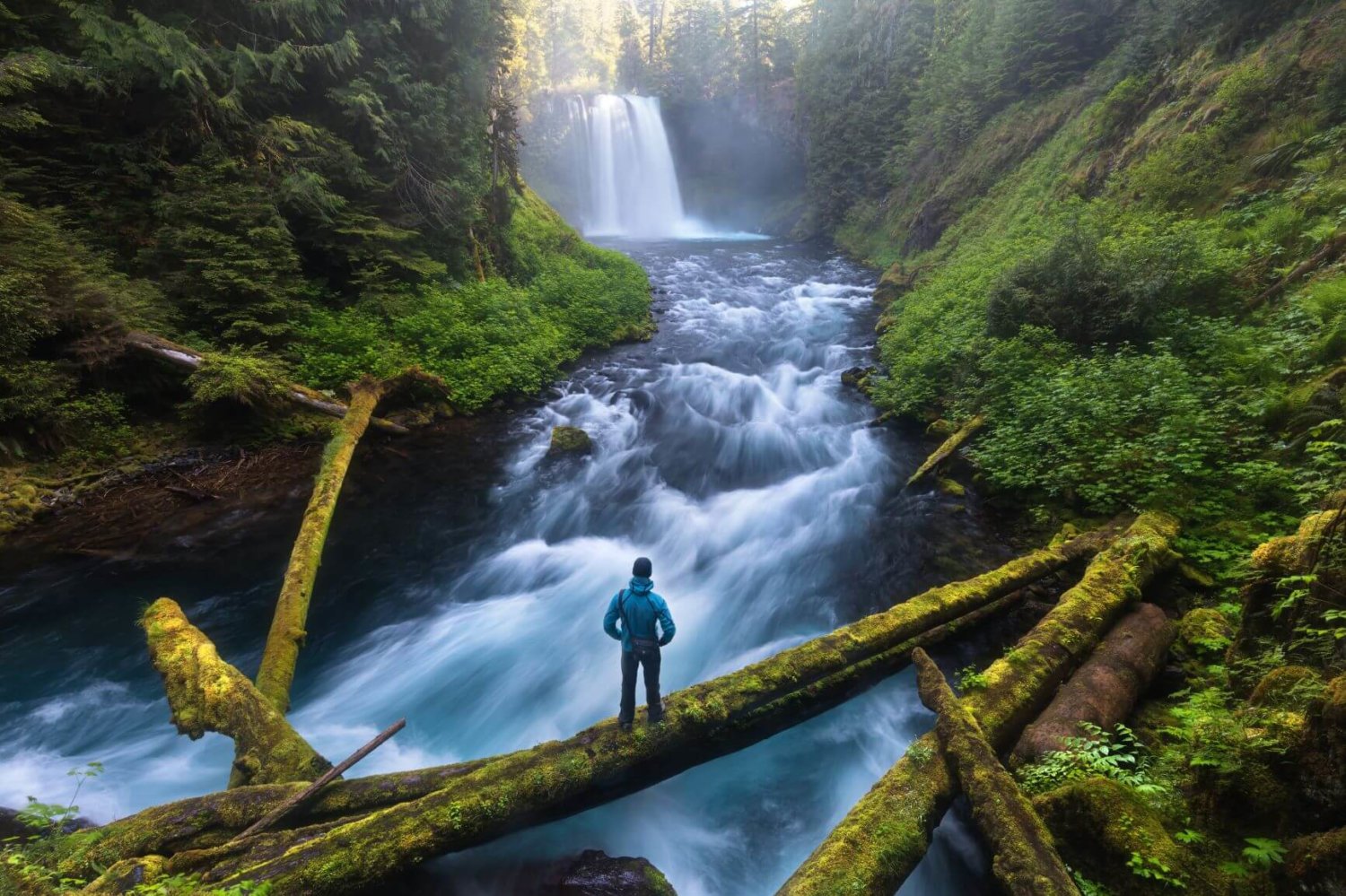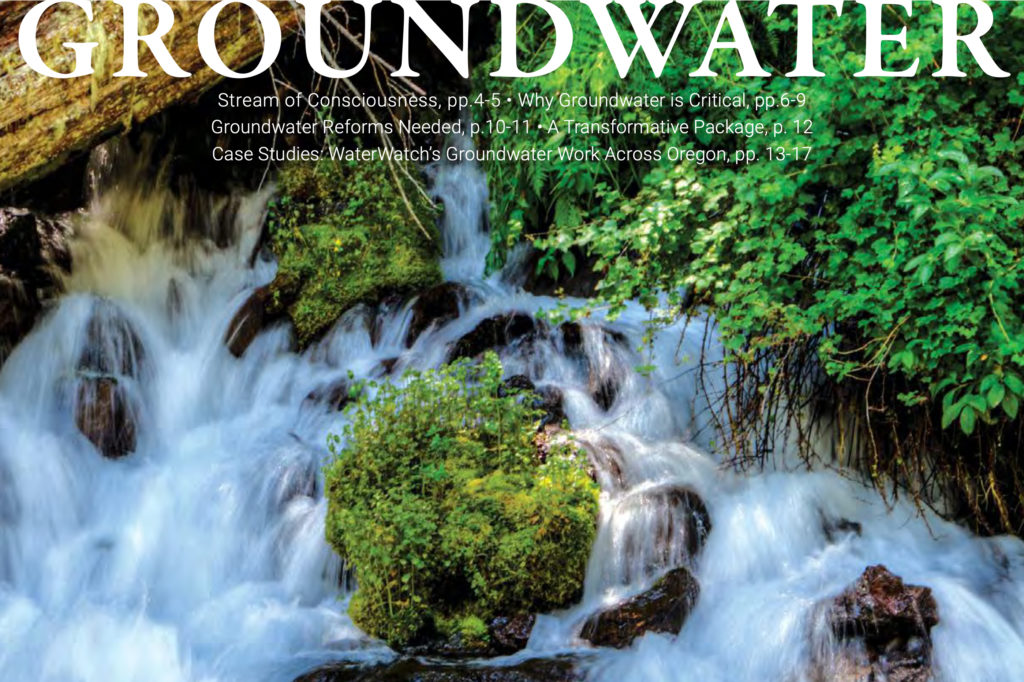Protecting Oregon’s Groundwater
Each year, some combination of climate-driven drought, heat waves, and wildfires hit Oregon with devastating and highly visible ecological, economic, and air pollution impacts. Meanwhile, an unseen crisis of falling groundwater levels threaten the health of our many groundwater-fed waterways, rural economies, and communities. While climate change is only a partial driver of recent groundwater declines, failures of elected leaders over decades have also contributed to our groundwater crisis. Oregonians can slow or stop these dangerous declines — if we make our leaders act.
OUR WORK
We advocate across Oregon in administrative, collaborative, legislative, and legal forums to secure sustainable groundwater management. We believe Oregon has an obligation to make sustainable groundwater allocation and management decisions — for streams, wetlands, people, communities, and waterways such as the groundwater-dependent McKenzie River pictured above at Koosah Falls.
WaterWatch has identified five urgent reforms to put Oregon on course to manage groundwater sustainably:
Stop issuing permits without adequate information: This default-to-yes approach has causes huge problems across Oregon. In Harney Basin, default-to-yes by Oregon Water Resources Department caused groundwater over-allocation of more than 100,000 acre-feet, and groundwater levels plummeting more than 100 feet in some areas. The department must default-to-no and deny permits when it lacks data to determine whether too many groundwater permits have been issued.
Stop the “race to the bottom” approach: Requiring well deepening to chase water to the bottom of the aquifer due to excessive groundwater pumping is antithetical to Oregon’s 1955 Ground Water Act. Race-to-the-bottom fails to maintain stable groundwater levels; fails to assure adequate and safe supplies of drinking water; and causes great hardships and costs to many rural residential well owners.
Enforce basic groundwater permit conditions: The Oregon Water Resources Department typically issues a groundwater permit with a “decline condition,” requiring that groundwater pumping cease if certain groundwater declines occur. These conditions are not enforced. The department must start enforcing decline condition permits to address known groundwater declines.
Revisit antiquated groundwater plans (e.g., let’s not dry up Summer Lake): An Oregon Water Resources Department plan allows unsustainable groundwater pumping to lower the groundwater level so that groundwater cannot flow to springs or support plants. Instead of supporting groundwater-dependent ecosystems, groundwater can be pumped for irrigation. In the Fort Rock area, implementing this plan would eventually halt groundwater flow at Ana Springs, which supplies water to Summer Lake – relied on by tens of thousands of waterfowl, shorebirds, and other waterbirds.
Expeditiously fix the system for designating critical groundwater area and regulate over-pumping: The Oregon Water Resources Department is authorized to limit groundwater pumping where groundwater levels are significantly declining. But more water is pumped from aquifers while the department updates rules governing the process. The state must complete this process now to implement pumping limits.
ACCOMPLISHMENTS
Oregon Legislature: Oregon Water Resources Department lacks adequate data to make sustainable groundwater decisions. But thanks to advocacy of WaterWatch and others, the legislature gave the department $4.38 million and 16 positions in 2021-23 biennium, and $1.6 million and six positions in 2019-21 biennium.
Deschutes Basin: Our work led to a joint Oregon-U.S. Geological Survey groundwater basin study, a moratorium on new groundwater rights, and the Deschutes Groundwater Mitigation Program. This program requires new groundwater pumpers to mitigate impacts on rivers and streams and sets a cap for new groundwater pumping that cannot be altered unless Scenic Waterway streamflows are maintained.
Harney Basin: Without WaterWatch’s 2014 protests of new groundwater permits, the state likely would have continued issuing permits in the basin. WaterWatch documented illegal groundwater use and worked with others to press for better accountability and enforcement. We monitor Oregon Water Resources Department’s public notices and weigh in on permit matters. Since, 2016, we’ve participated in Harney Place-Based Planning Process, working with others to find solutions to this difficult problem.
Klamath Basin: WaterWatch was the first conservation organization to take Klamath groundwater head-on some 20 years ago. We successfully petitioned the state to substantially curb new groundwater development. We helped defeat renewal of an exclusive water pumping subsidy worth $10 million yearly to Klamath agribusiness interests. We strongly supported a federally funded comprehensive water demand reduction program, which passed the Senate but was gutted in the House. We advocate for and raise awareness of the need for such a program at all levels of government, and against groundwater mining subsidies. We are fighting in court to restore Klamath’s refuges to fish and wildlife purposes with the complementary benefits of natural water storage, groundwater recharge, and natural water filtration.
Umatilla Basin: WaterWatch is part of a coalition opposing new mega dairies because of potential to strain water supplies – including groundwater aquifers with critical condition designation because of water users taking more than aquifers can give long term. We successfully fought a new dairy’s effort to add unsustainable groundwater demands to the area, and the dairy shut down. A proposed new dairy has agreed not to use the stockwatering expemption to tap area groundwater, with our attention to the issues helping secure that result.
WaterWatch’s work on groundwater mismanagement:
We’ve included links to several excellent media pieces and reporting from the Oregonian and Oregon Public Broadcasting on the state’s mismanagement of groundwater, and its importance to Oregon’s environment and communities.
Race to the Bottom: How Big Business Took Over Oregon’s First Protected Aquifer
Race to the Bottom: Draining Summer Lake
Race to the Bottom: How Central Oregon Sells Groundwater to the Highest Bidders

Related Programs
Advocating for Reform
Water law is primarily state law. WaterWatch works at the Oregon State Capitol to provide a voice for healthy rivers and sound water policies.
Government WatchDogging
WaterWatch monitors all of the individual water allocation decisions across Oregon for compliance with the law and potential negative effects on our rivers. Our goals are legal compliance, agency accountability, and to ensure that rivers and the public have a voice in decisions affecting our rivers, streams and aquifers.


